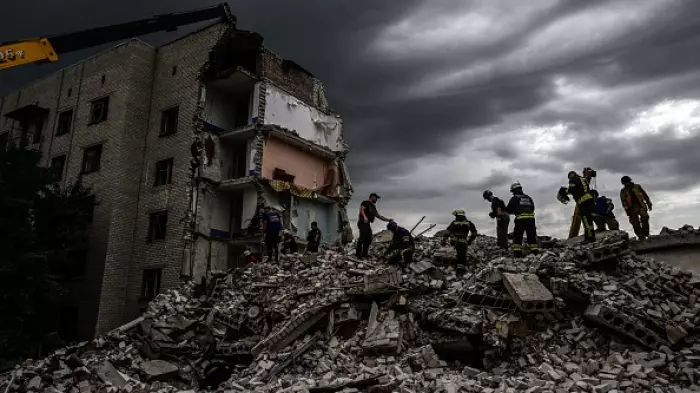The Mormon church boasts $424 million in assets, making it NZ’s third wealthiest centralised religious group and 20th richest charity.
Even the nation’s prime minister, Jacinda Ardern, is a former member, with her uncle Ian in charge of the church in New Zealand, Australia and the Pacific Islands.
In the third of a three-part series investigating the Church of Jesus Christ of Latter-day Saints, BusinessDesk looks at the future of the church and the Jacinda Ardern connection.
With additional reporting by Andy Fyers and Greg Hurrell.
In April this year, the PM’s uncle, Ian Ardern, had a “spiritual experience” in Utah, in the United States. The cause? The Church of Latter-day Saints’ global president and prophet, Russell M. Nelson, had just announced that a temple was to be built in NZ’s capital, Wellington.
“As I sat in the conference centre, there was an air of anticipation as president Nelson stood to speak as the concluding conference speaker,” he said in a press release. Ardern is the church’s Pacific area president, covering Australia, NZ and the Pacific Islands.
“Hearing the announcement was a spiritual experience for me … How blessed we are of the Lord to soon have three operating temples in New Zealand.”
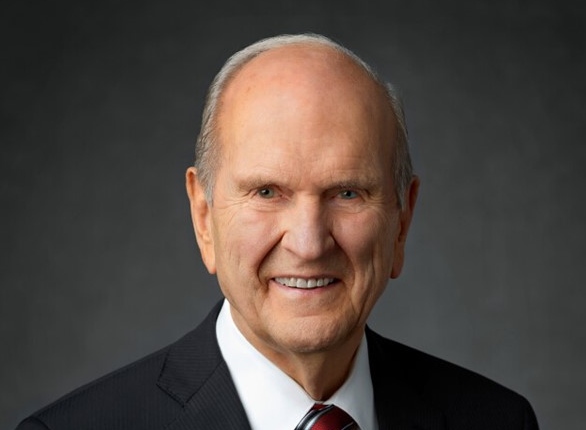 Church President Russell M. Nelson
Church President Russell M. Nelson In terms of temples, Mormonism in Aotearoa is booming.
The place of worship in Hamilton, first constructed in 1958, is soon to be reopened, or ‘dedicated’, after major renovations.
For an Auckland temple, the ground was broken in 2020 and stone cladding was installed in May this year, ahead of a 2024 opening in Manukau. News of Wellington completes the trifecta.
Yet membership in the capital is far from accelerating, with city census numbers remaining at 690 between 2006 and 2018.
One former Bishop, AB, who asked to remain anonymous to protect his family members still in the church, told BusinessDesk: “The Wellington temple was just announced and doesn't make sense because the Wellington region membership is shrinking; they will struggle to staff the temple.
“It is likely the Wellington temple will sit closed most of the time, the temple will cost $10 million-$20m to construct, so it's a lot of money to spend when it's not really justified.
“It feels like the temple construction programme is being used to do two things. First [to] give an impression of growth and prosperity, second to spend some of the church donations. A building construction programme is an easy way to soak up money and justify charitable status.”
There’s certainly cash going spare. Since 2014, the church has run a large surplus, averaging $27.2m annually. In 2020, it exceeded $40m for the first time – more than enough to cover temple construction.
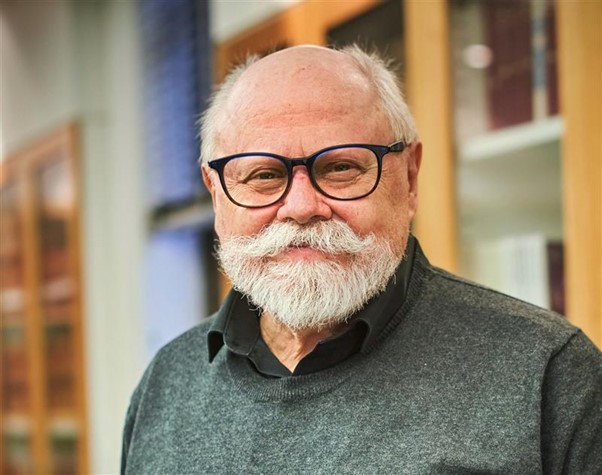 Neville Rochow QC worked as the church’s representative to the European Union from 2015-17.
Neville Rochow QC worked as the church’s representative to the European Union from 2015-17.'Wishful thinking'
He added: “This occurred on the announcement of a temple in China. The proposal for a temple in Russia would also appear a forlorn hope born of wishful thinking, rather than planning.”
Just weeks after Nelson announced the temple in Shanghai, it was revealed that it would not be possible to set up, either legally or logistically, under Chinese religious law.
Decisions on how to use the church’s funds in the Pacific region are taken at the area office in Takapuna, Auckland, although with strict supervision from leaders in Salt Lake City, Utah.
Elder Ardern, who has four children, is supported by elder Brett Nattress, from Utah, who has seven children and elder Kazuhiko Yamashita, from Tokyo, who has six.
The office, which manages operations in NZ, Australia and 14 Pacific islands, is divided into two main parts.
One administers the religious element of the operation, such as missionaries, family history and church leadership.
The other half, known as the Presiding Bishop's Office, manages the physical facilities.
Overseeing the church’s vast regional property portfolio is likely to occupy the time of the office’s many architects, engineers, planners, real estate managers, procurement advisers and facility managers.
This goes some way to the average $59.47 hourly earnings for 200-plus paid employees, the church said in its submissions to the Charities Register.
Just like the number of unpaid volunteer hours, Mormons dwarf other religious groups in NZ when it comes to wages for paid employees.
According to one former bishop who asked not to be named (we'll call him SC): “The church in the last 20 years moved to make low paid work like cleaners done by the local volunteer congregation – which means that the remaining employees of the church in New Zealand might be specialised staff and command a much higher hourly rate.”
Rochow explained that church leaders in Utah are very keen on having teams near-global centres of power.
Direct attempts to influence policy may be less common than in the US, but, ultimately, proximity and familiarity with those in power help legitimise the church.
So, the rise of lifelong member and Pacific area president Ian Ardern’s niece, Jacinda, who has won global plaudits for her national leadership, would’ve been welcomed by those in Salt Lake City.
“They would regard it as an opportunity to place the church in a position of prominence that it could only hope for and not obtain but for the chance familial relationship,” he said.
However, the PM herself left the church in her 20s, citing the incompatibility of her beliefs with the church’s intolerance for LGBTQ+ people.
Ardern explained her religious journey to the NZ Herald in early 2017: "For a lot of years, I put it to the back of my mind. I think it was too unsettling. If something like religion is part of your foundation, and then suddenly you start questioning that – it's quite a confronting thing to deal with.
"Even before the Civil Union Bill came up, I lived in a flat with three gay friends and I was still going to church every so often and I just remember thinking 'this is really inconsistent – I'm either doing a disservice to the church or my friends'. Because how could I subscribe to a religion that just didn't account for them?"
In another interview, with Now to Love magazine, she said: “I did feel torn, but I was lucky because I knew my parents would accept whatever decision I made. I knew it wouldn’t affect my future relationship with my family. Not everyone is so lucky.”
All or nothing
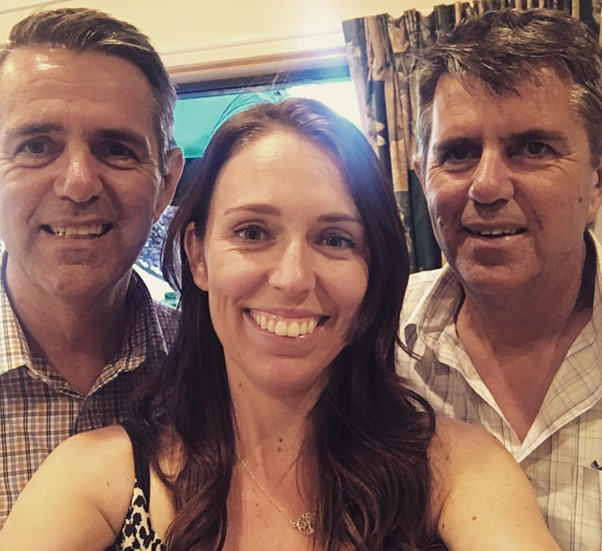 Jacinda Ardern with her father Ross and his twin brother, Ian, in 2016. (Image: Jacinda Ardern’s Facebook page)
Jacinda Ardern with her father Ross and his twin brother, Ian, in 2016. (Image: Jacinda Ardern’s Facebook page)Indeed, many followers who decide to leave have suffered tremendously for following their conscience, with some “sidelined and shunned by their family”, said AB.
Others have lost contact with their partners and kids; they’ve lost their jobs with the church and their whole community.
One NZ member had to give up their place at Brigham Young University when they came out as gay.
The consequences of leaving are so great that many who have lost faith are too scared to depart.
“Since I left, I have been surprised at how many people in leadership roles have come to me in confidence to say they don't believe at all but can't get out because they would lose their wife or not be able to speak to children. So, they attend and pretend to believe,” said AB.
He said at least six senior leaders who remain in the church have confided in him – and as many regular active members.
Another former bishop, SC, who lost belief in the church’s core tenets but remains part of his local Mormon community, said: “I also know many who don't believe but who stay to preserve family relationships.”
Even for those who do stop attending, formally leaving the church can take years.
“As bishop, I was instructed to make it hard to get people off the records. The official process is to write to your bishop, who writes to the stake president, who writes to the Takapuna offices, who processes with Salt Lake.
“But at each stage, the letters can be declined or, as I was instructed, just left in my office drawer for a year or two to give people the chance to reconsider,” said AB, adding that when people do leave, the church always comes up with excuses.
“The real reasons for them leaving are never discussed. Artificial reasons like being lazy, wanting to sin are used as covers if it’s ever discussed.”
As a high-profile departee, Jacinda Ardern’s early Mormonism is a source of “tension” among members, said Bishop SC.
“On the one hand, members want to claim her as a success but on the other hand, because she has left, they can’t, and often gloss over that she has been a member.
“We are fortunate in New Zealand that high profile 'ex-members' are so successful. The church narrative, that if you leave you will be worse off, doesn't hold up. So, people largely ignore those that leave rather than confront them.”
The PM has said little about the practices of the church, aside from during the 2017 Herald interview, where she did take aim at the practice of tithing.
"I do draw a line if people are being taken advantage of – for instance, the tithes in some churches. I feel very strongly about that," she said. [The burden of tithing on Mormons was outlined in Part Two of our Mormon series.]
Family time
On the afternoon of May 20, 2019, in the Beehive, the PM met with Russell M. Nelson – the global leader of the church, who is regarded as a prophet by believers.
Ian, his wife Paula, Jacinda's father Ross and mother Laurell Ardern were there, too, as well as other Latter Day Saints representatives.
The meeting was listed in her official diary but the sole media presence was the church-owned Deseret News.
No minutes were taken of the meeting and it was not posted on the PM’s social media. She had just returned from her successful Christchurch Call [to Action] trip in Europe.
During the meeting, Nelson presented her with a leather-bound copy of the Book of Mormon with her name embossed on the front.
Her private secretary had tried to rearrange the meeting for the morning, emails obtained under the Official Information Act (OIA) reveal.
But Ian Ardern replied that “there is no way we can move the meeting” since “president Nelson will be just boarding his plane in Sydney at that time”.
“It has been incredibly challenging to get all of this lined up … the take-off and landing times for the private jet were a challenge in themselves,” he lamented.
“When I initially spoke with Jacinda about the visit, she said she would do what was needed to make it happen, so I know she is keen for the meeting to take place.”
The private secretary replied: “Absolutely fine. I wanted to offer the morning where the PM might have more time to give. 3pm is still doable (it cuts into the PM’s post-Cabinet press conference prep time, so the meeting will have to start and finish promptly).”
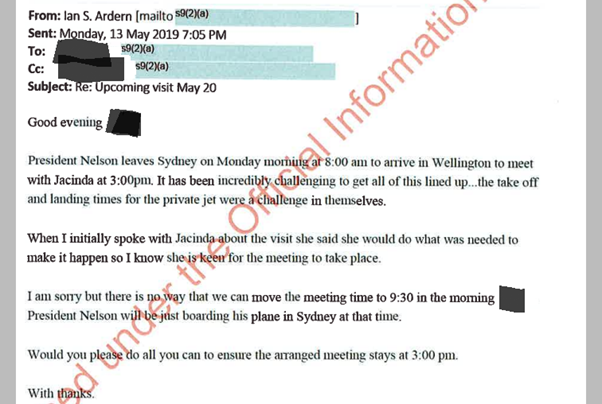
A document, attached to an email with the subject line ‘Talking Points,’ has since been lost by the PM’s office.
Another line, sent from the secretary to Ian Ardern, has been redacted since it was “not relevant to your [OIA] request”. This is despite the request asking for “any communication” between the PM’s office and her uncle.
After the meeting, Nelson, whose church does not allow women to become paid leaders, told Deseret News: “It's an unlikely scenario – a young mother leading a great nation, a peacemaker, a policymaker, consensus giver. We're very impressed with her. She'll have a great future.
“It was a wonderful experience. We felt like family, really, with her."
Two days later, Nelson announced a US$100,000 (NZ$158,643) donation to help rebuild the two Christchurch mosques damaged by the terrorist attack in March 2019.
A year before the Beehive meeting, the PM met elder Neil Andersen, a member of the exclusive Quorum of the Twelve Apostles, along with Ian and Paula Ardern, in Auckland.
A spokesperson for the PM told BusinessDesk: “The prime minister regularly meets with a range of church leaders and attends church events as part of her role, as she does with many sectors of society.
“She has undertaken this meeting as a standard part of her role, following the usual meeting request protocol.
“There were no personal promises involved and the prime minister always takes care to follow the Cabinet Manual, which also notes that ministers receive many invitations to events and offers of speaking engagements and that they should try to honour invitations from a variety of organisations. It also notes that ministers do not act in isolation from their community networks.
“She has no expectation her meeting in 2019 changes the standing of the church in any way.
“She has previously voiced concern about any pressure put on low-income people to contribute money to churches.”
Her spokesperson also sent a list of 10 meetings and one phone call with religious leaders between 2018 and 2022.
We put a series of questions to the church’s Pacific office. In response, a spokesperson said: “Members of The Church of Jesus Christ of Latter-day Saints in New Zealand and around the world are disciples of Jesus Christ and strive to follow His example, live according to His commandments, and incorporate Christ-like attributes in their daily lives.
“As part of that effort, Latter-day Saints follow the biblical practice of paying tithes and offerings.
“These funds are used to build and maintain houses of worship, to alleviate poverty, to help individuals become more self-reliant, to support a worldwide missionary program, to maintain schools in some Pacific countries, and support many other community and humanitarian efforts. The church follows the law of the land in New Zealand and in all countries in which there are congregations.”
This is the third part of the Riches of Heaven series in BusinessDesk’s charities project, produced with the support of NZ On Air.











